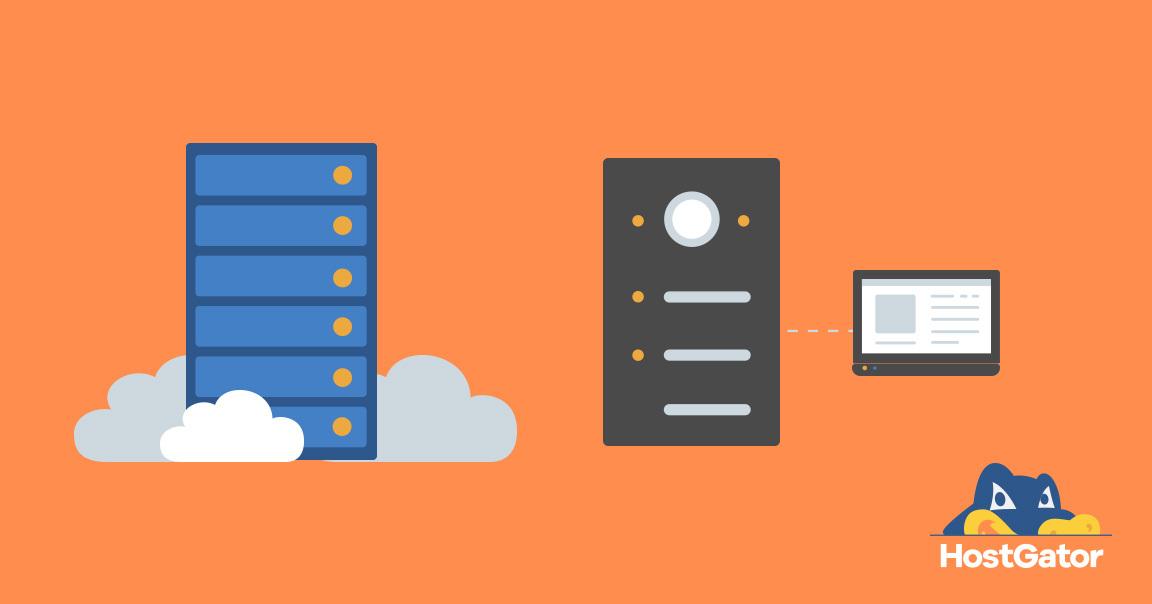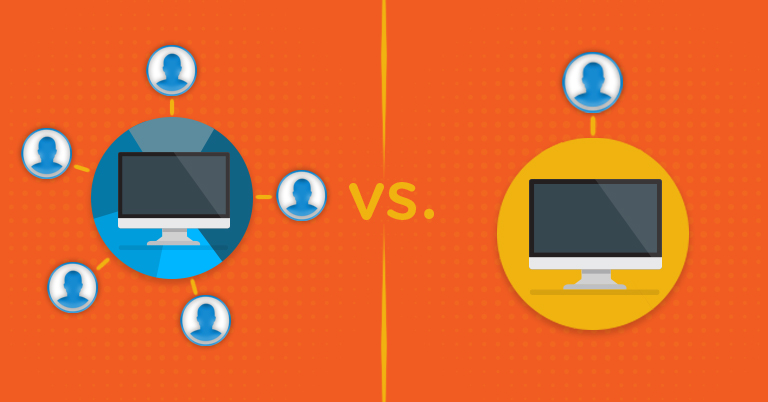Every smooth-functioning website needs the foundation of an equally strong web hosting solution. Choosing the right kind of web hosting can be tedious and may seem like a hassle. With so many flavours of web hosting available in the market today, it’s only natural for users to get spoilt for choice.
In this article, we are going to talk about two of the most promising and reliable forms of web hosting – Cloud Hosting and VPS Hosting. Furthermore, we will list down the difference between VPS and Cloud. First things first, let’s clear our concepts.
What is Cloud Hosting?
Cloud Hosting, in simple words, is an arrangement where multiple machines that are connected within a network act as one. In fact, with Cloud Hosting you get all the benefits of cloud technologies, as well as, the ease and simplicity of Shared Hosting. It gives you the power to scale your RAM and CPU resources, while also maintaining redundant copies of your storage to protect against disk failures.
What is VPS Hosting?
Virtual Private Server aka VPS Hosting is more like a hybrid of Shared Hosting and Dedicated Hosting. In this case, a single server is compartmentalized into different sections with a software known as the hypervisor wherein each section acts as an autonomous server. Each of these virtual compartments aka servers share the resources such as bandwidth, server space, operating systems, etc. of the parent server amongst themselves. However, none of these ever have to bear the brunt of the over-usage of another server or even get affected by any failure in any of the servers.
Now that we know what each of these Hosting variants are, let’s make a comparison to understand the primary differences between Cloud Hosting and VPS Hosting in detail.
Cloud Hosting vs VPS Hosting Which one should you choose?
- Performance
While Cloud Hosting boasts of higher availability, better uptimes and blazing fast website load speed, VPS Hosting guarantees a fixed level of performance since a set level of system resources are dedicated to each compartment i.e. the virtual server.
In a Cloud Hosting setup, there are multiple servers connected to each other that store copies of your data. Hence, in case there is a failure in any of the servers, another available server takes up its operations as files and functional responsibilities of the failed server are instantly migrated to it without any downtime. Thus, there is no single point of failure with Cloud Hosting.
In the case of VPS Hosting, your server is partitioned using a hypervisor. which enables your website to perform optimally with lesser requirements. HostGator’s VPS Hosting makes use of KVM (Kernal-based Virtual Machine).
However, a single point of failure on the part of the parent server i.e. the physical server will lead to a disruption in functioning, and eventually failure of all the virtual servers on that machine. Usually, high demands by one or more virtual servers on the same physical server has the potential to impact the performances of both the affected servers if both of them need extra resources at the same time.
- Customization
With Cloud Hosting you can install various applications with a single click from cPanel. However, one may have less control over the hosting settings when it comes to distributing functions across multiple servers.
Customization with respect to VPS Hosting works in the same fashion as it does for a Dedicated Server. VPS hosting gives users full root access replete with complete control over the operating systems, the website as well as all the software. Customization and configuration can be done as desired. However, since every physical host system is capable of running only one OS, the choice of OS may be limited in case the provider doesn’t provide many choices.
- Scalability
The easy availability of truly high processing power makes Cloud Hosting certainly a lot more reliable and scalable. Cloud Hosting allows you to upgrade your RAM and CPU resources on-demand with a single click whenever you experience a spike in website traffic.
In the case of VPS Hosting, you can neither scale your resources nor the plans.
- Cost*
Cloud Hosting, relatively, costs lesser than VPS Hosting since your server space is shared with other users on the server.
VPS Hosting is usually more expensive than Cloud Hosting. This is because your server space is isolated and you get guaranteed server resources that not shared by others.
*This cost also partly depends on the ancillary services such as management and support, that come with the hosting package.
We hope this article has helped you understand the basic differences between Cloud Hosting and VPS Hosting. If you wish to read more such articles, do let us know in the comments section below.









